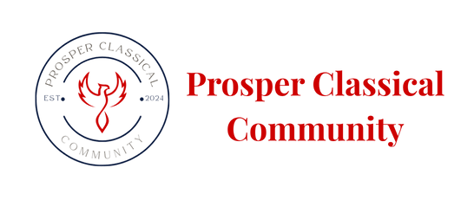Curriculum
PCC uses a Classical Education model, which is a time-tested approach that centers on the pursuit of truth, goodness, and beauty. It emphasizes the study of the liberal arts—grammar, logic, rhetoric, arithmetic, geometry, and music—as well as the great books and the foundational language of Latin. Rather than focusing solely on content, classical education trains students in how to learn and how to think. The goal is to cultivate lifelong learners who reason clearly, communicate effectively, and engage the world thoughtfully and persuasively.
PCC uses Claritas Publishing as our memory work curriculum for our Lower School, IEW and Claritas for Grammar & Composition class, and an eclectic mix of curriculum with a biblical worldview for Upper School.
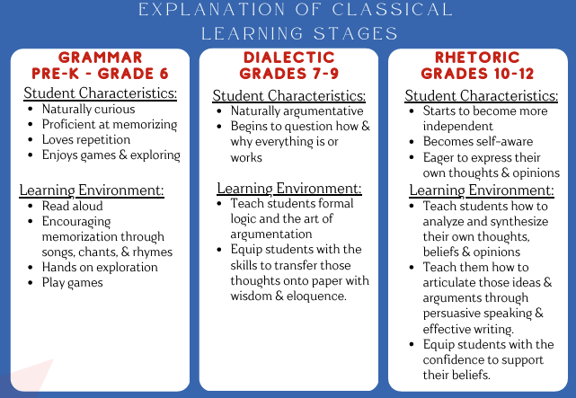

Lower School
Lower school students, age 4-grade 6, begin the day together in the Fellowship Hall at 9:15 for a morning assembly, and then disperse to the classrooms. Students will spend the morning with their teachers learning memory work including science, history, English, math, geography, and Latin. They will rotate through presentations, hands-on science and art, and finish their day with a review.
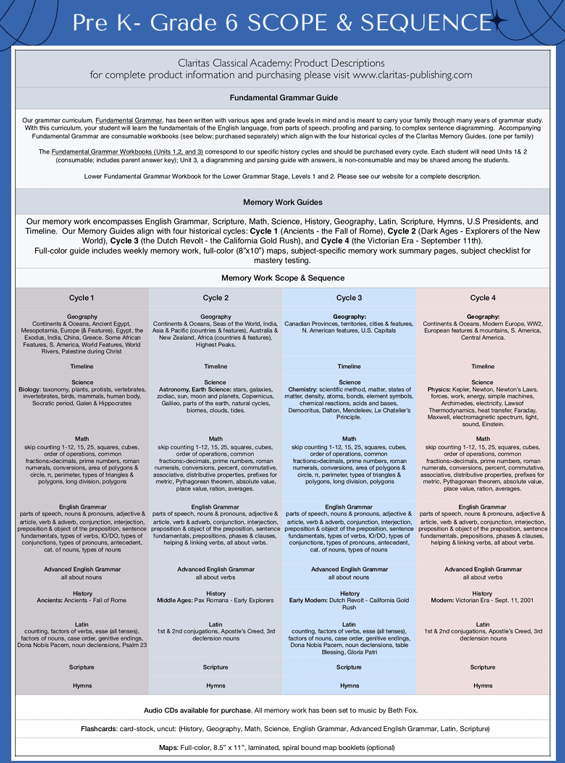

Click for full screen
Grammar & Composition
Grammar & Composition class is for students in grades 4-6, and meets after lunch and recess from 1pm-3pm. Our composition curriculum rotates history cycles from the Institute for Excellence in Writing (IEW), and our grammar curriculum follows the Fundamentals of Grammar from Claritas publishing.
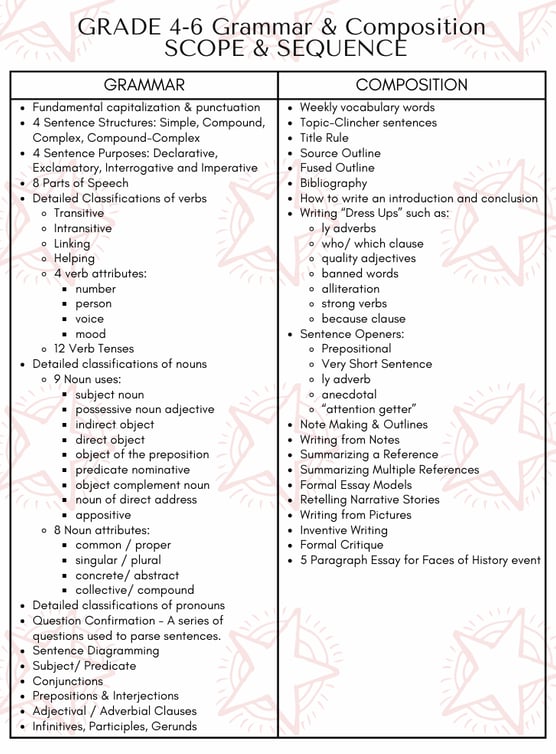

Click for full screen
Upper School
Upper School students, grades 7-12, begin their day at 8:05am, and spend their time learning and discussing subjects such as math, logic, Latin, debate, science, literature, and history. The community comes together at 12:00pm for lunch and fellowship. Following lunch, both Grammar and Composition students and Upper School students meet in their respective classrooms until 3:00pm.
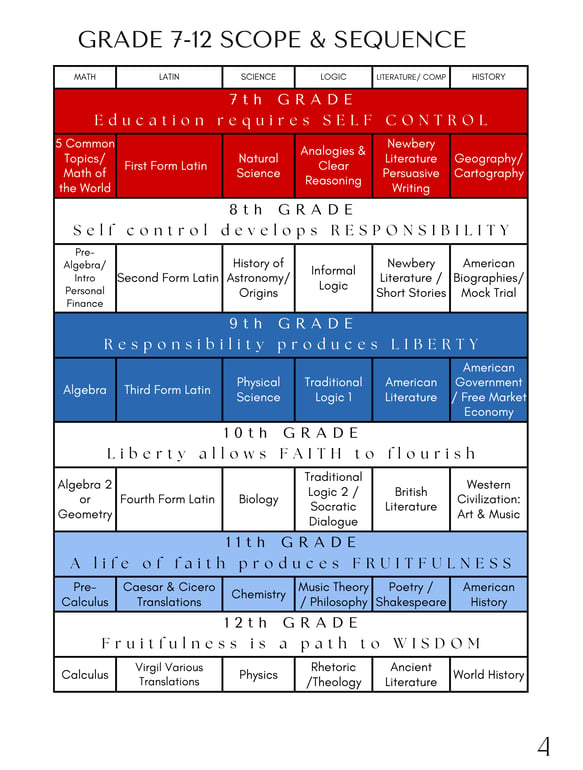

Click for full screen
Beyond the academic day
Beyond our academic days, we seek to offer the following:
Orientation meetings for the various programs, meet-the-teacher events, and academic-related meetings for certain subjects and curricula.
In-Community events: special on-campus celebrations including holiday events, canned food drives, a community talent show, special guests and speakers, and more.
Fellowship Events: field trips, service projects, park days, and family gatherings.
Mom Equipping Events: Dinners out together for fellowship, book discussions, and social gatherings.
